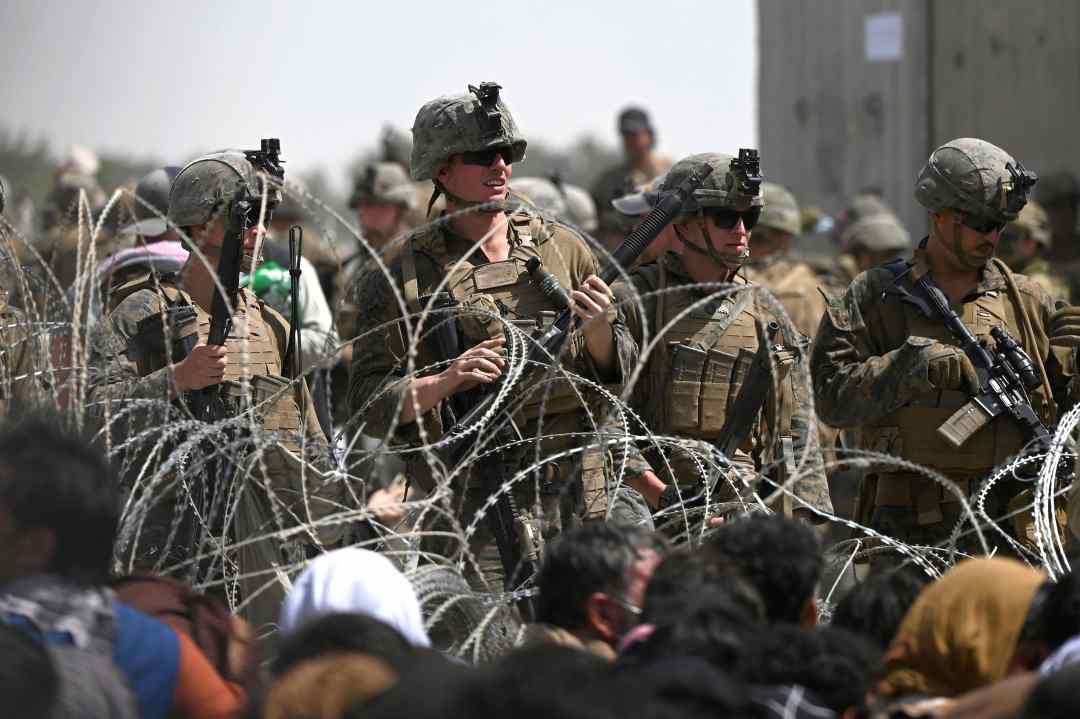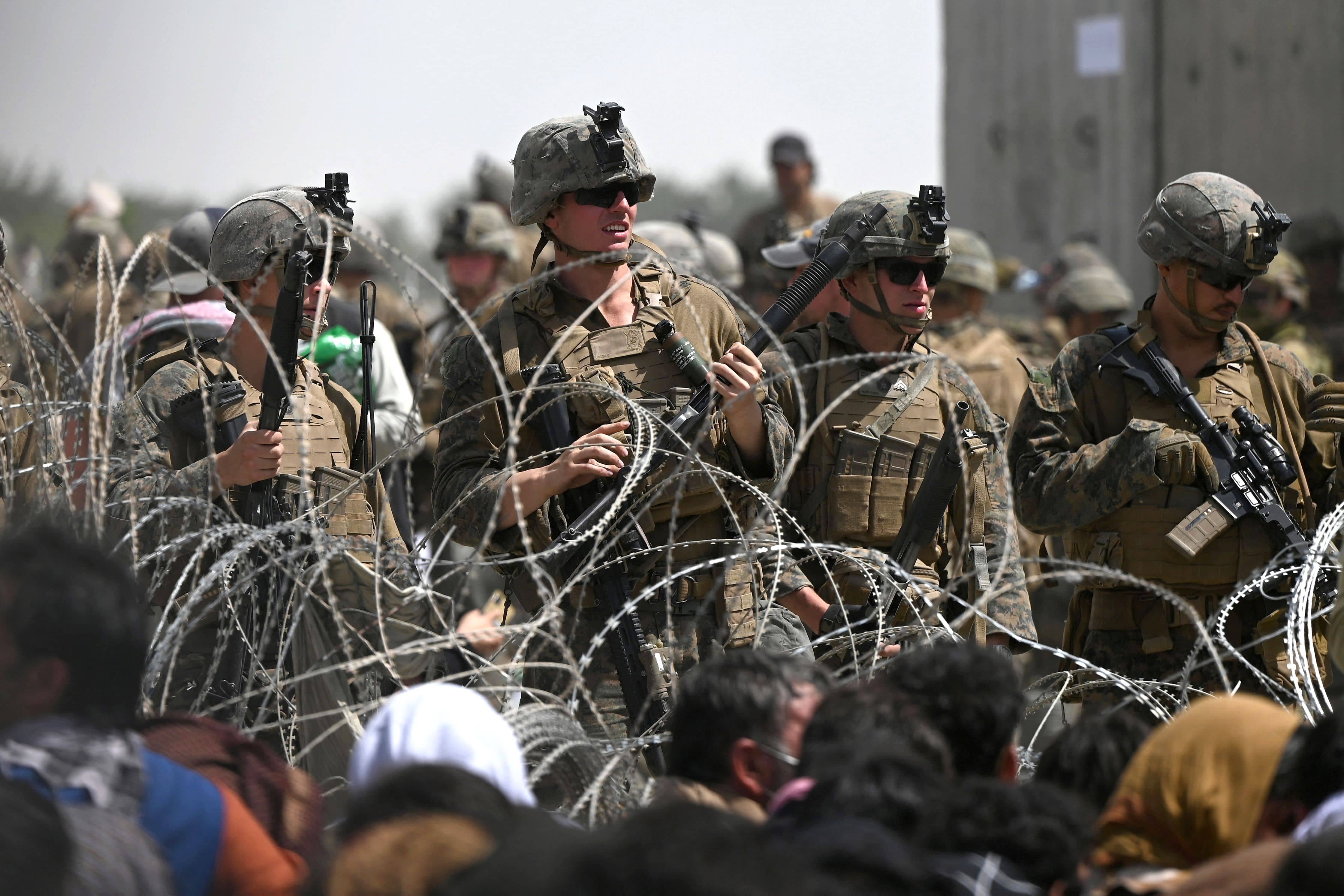This week, the media pressure was on the British government to extend the deadline for the evacuations from Kabul airport. The government had no power to do this unilaterally: it duly asked the United States, and was duly turned down. The issue was almost beside the point. It is doubtful, given the burning desire of so many to leave the country, whether a few more days of rescue flights would have done much to shorten the suffering queue of hopefuls.
Each day is dangerous, so more days are more dangerous. Preoccupation with extension deflected attention from the key point, which is that all evacuation planning assumed that Kabul and its airport would be controlled by the (now former) Afghan government, thereby ensuring an orderly exit. President Biden announced his end-date under that assumption, so he was trapped when the Taliban suddenly won. He remains so.
The military question is: how do you collapse the perimeter without incurring casualties (military or civilian)? The political one is that power rests with the Taliban. If it assists the evacuation, and then kills those who remain, Nato will be seen to have encompassed those deaths. If it opposes it, there will be a terrible battle at the airport. That is why you suddenly hear western experts gabbling about the moderation of the Taliban and pretending they must be supported to ward off the danger of IS.
This is an extract from Charles Moore’s notes, published in tomorrow’s edition of The Spectator.








Comments